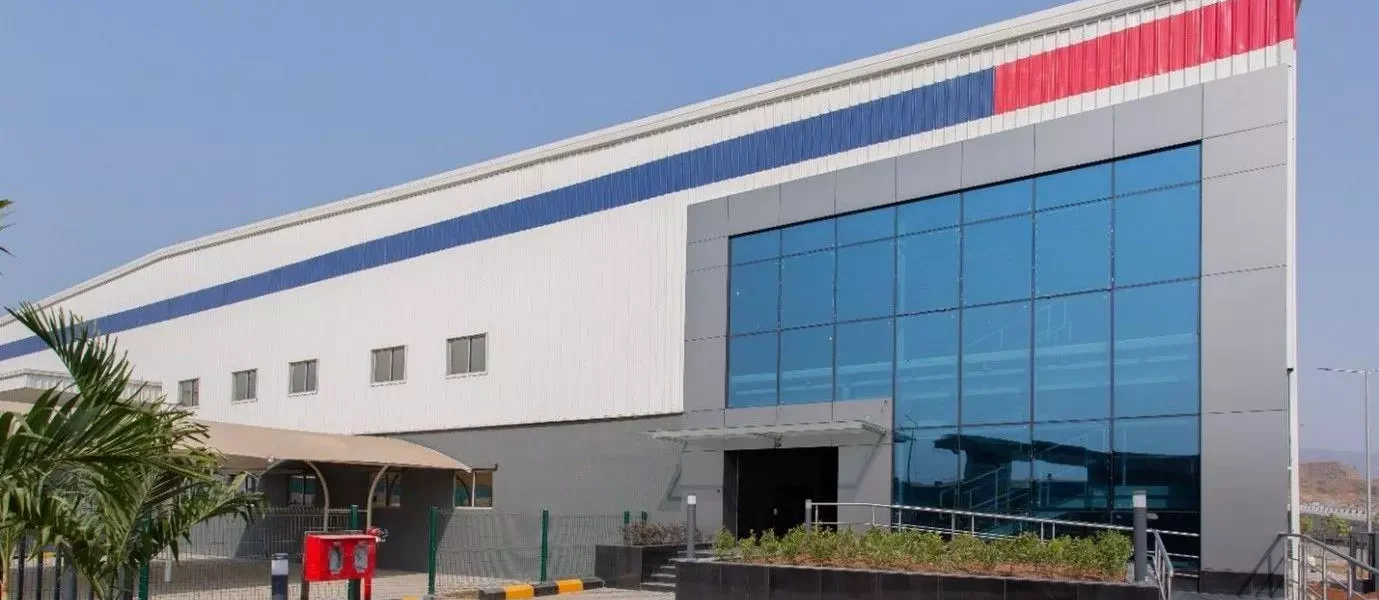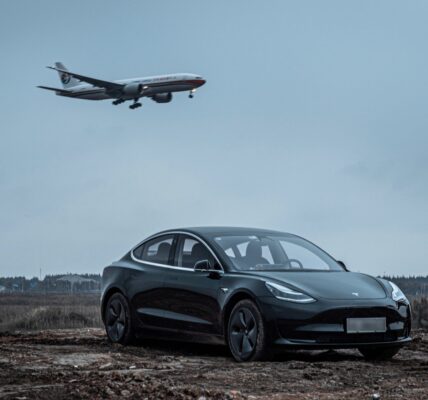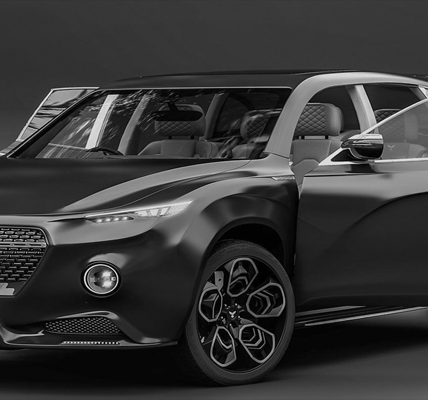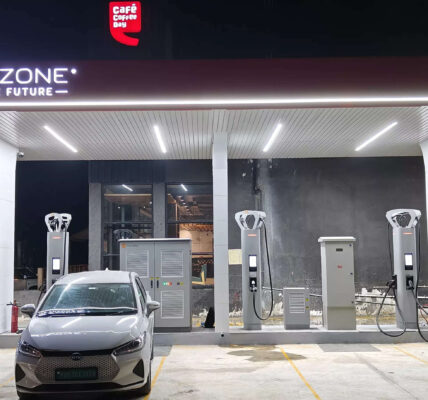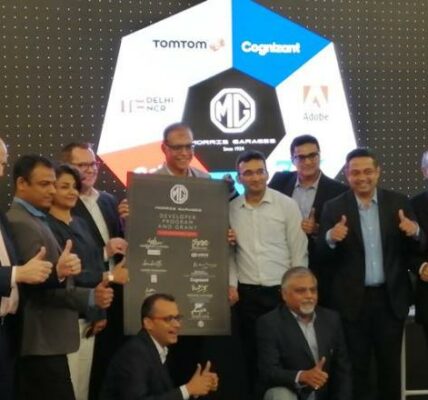Even though a late entrant in the race of becoming India’s soughtafter automobile hub, Gujarat is clearly taking newer strides when it comes to electric vehicle (EV) manufacturing.
As the policy focus of both the state and the Centre is largely shifting towards adopting greener technologies, car, and two-wheeler makers who already have manufacturing facilities in Gujarat are making big-ticket investments to ramp up their EV capabilities.
The rising demand for EVs, driven by the lower cost of operations, and subsidies offered by the state and the central governments, in addition to improving technology and infrastructure, has propelled all major players to consider expansions.
Those already having a base in Gujarat are preferring to expand it for EV manufacturing.
A case in point is homegrown automaker, Tata Motors which recently took over Ford Motor Company’s plant in Sanand through its subsidiary. At its current plant in Sanand, Tata Motors manufactures Tiago, Tigor range (includes ICE, CNG and EVs) and XpresT EV sedan.
“Tata Passenger Electric Mobility Limited, a subsidiary of Tata Motors Limited, has recently acquired from Ford India Private Limited, its manufacturing plant situated at Sanand, Gujarat, for a total consideration, exclusive of taxes, of Rs 725.7 crore. With existing capacities near saturation, this acquisition will unlock an additional manufacturing capacity of 3,00,000 units per annum which is scalable to 4,20,000 units per annum. Tata Motors has strong plans to sustain its growth momentum with its robust pipeline of future-ready products and proactive investments in electric vehicles,” said Anand Kulkarni, chief product officer and head, high voltage programs, Tata Passenger Elec tric Mobility.
“Tata Motors is preparing to commence operations in the recently acquired Ford plant, in Sanand by 2024. To ensure optimal performance and product quality, we are undertaking essential modifications and retooling activities for the vehicles to be manufactured at the new Sanand plant. These initiatives are crucial to align our production capabilities with Tata Motors’ renowned standards of excellence. The recently acquired plant will help us with an additional 3,00,000 capacity which can be enhanced to 4,00,000, so we are well covered for future ramp up,” said Kulkarni.
Similarly, India’s largest carmaker, Maruti Suzuki India Limited, which has recently approved acquiring 100% stake in the Suzuki Motor Gujarat (SMG) plant in Hansalpur, and has invested in electric vehicle and battery manufacturing in Gujarat, plans to have 15% of its annual car sales coming from electric vehicles and 25% from hybrid vehicles by FY 2030-31.
Hisashi Takeuchi, MD and CEO, MSIL, said, “SMC has committed a huge investment, especially for decarbonization efforts. This includes launching six EV models by 2030-31 in India. The company will launch its first EV in the next fiscal itself, a prototype of which was showcased at the Delhi Motor Show in January 2023. The EV will be manufactured at Suzuki Motor Gujarat, for which the production facility is being set up.”
“The development of electric vehicles is proceeding well at the Gujarat facility. We expect to start the sale of the first model in 2024-25,” said R C Bhargava, chairman, MSIL.
MG Motors too recently began manufacturing its newly launched EV at its plant in Halol. The company has already announced its second plant with a Rs 5,000 crore investment in Halol to ramp up automobile manufacturing capacity with special focus on EVs.
Renewed thrust: Two-wheeler segment in top gear
A renewed thrust on electric mobility has led to new players investing and expanding their presence in Gujarat over the past few years. For instance, Odysse Electric Vehicles Private Limited, which already has a plant at Changodar in Ahmedabad that manufactures 2,500 electric two-wheelers every month in a single shift, now plans to make fresh expansions here.
“We are in the process of expanding our capacity with fresh investments. Our plant will be operational by the end of 2024 and will have the capacity to manufacture 10,000 units a month. Over the years, the demand for EVs has grown significantly in the wake of better awareness among consumers, better technology and cost-effectiveness of these vehicles,” said Nemin Vora, founder and CEO, Odysse. Other players like WardWizard Innovations and Mobility Limited and Matter and Svitch Energy Private Limited have also forayed here over the past five years. In fact, companies are bullish on launching new products as well as foraying into backward integration.
WardWizard Innovations and Mobility recently operationalized its 1GW assembly line in Vadodara for locally manufacturing its battery packs. The company further plans to expand its R&D operations and production of electronic components in the EV Ancillary Cluster.
Move towards cutting costs of EV manufacturing
Besides policy push and incentives, automakers have been largely advocating reducing the cost of manufacturing electric vehicles to make them more accessible and encourage their use. Local capacity for battery manufacturing is a big step in this direction and Original Equipment Manufacturers (OEMs) are taking active interest.
MSIL’s parent company, Suzuki Motor Corporation, has already announced plans to invest in Gujarat for constructing a plant for manufacturing of BEV batteries. The Toshiba Denso Suzuki Lithium-ion Battery Gujarat Private Limited (TDSG) is India’s first lithium-ion battery manufacturing plant with cell-level localisation. TDSG is a collaboration between Toshiba, Denso and Suzuki.
More recently, the Tata Group signed a memorandum of understanding with the state government, committing to invest Rs 13,000 crore to build an EV battery plant in Sanand, with a manufacturing capacity of 20GWh.
Both these plants will help India develop its own electric vehicle supply chain rather than relying on imports.
Focus on expanding charging infrastructure
As the demand for electric vehicles is growing, the focus on developing and expanding charging infrastructure is increasing significantly in Gujarat.
While startups began foraying in this space at the initial level, even established companies have begun taking interest. In fact, car manufacturers are also open to taking up cocapex partnerships here.
Kartikey Hariyani, founder and CEO, ChargeZone, based in Vadodara, said, “Both OEMs as well as real estate developers are increasingly showing interest in collaborating with charging infrastructure players. Moreover, access to capital for sound business models has also increased. We are bullish on expanding our existing network of 3,350 charging points across the country.”
Even homegrown corporates like Adani Total Gas and Torrent Power forayed into the EV charging space and are going big on expansions not just in Gujarat but across the country. Adani Total Gas plans to take its number of EV charging points to 3,000 in the next 12-18 months, the company.
Similarly, Torrent Power too recently entered the electric mobility infrastructure sector.
The initial set of four EV charging stations has been set up in Ahmedabad whereas two more are likely to be launched in Surat soon.
“A robust public EV charging infrastructure is important to drive a revolution in the transportation sector by encouraging people to switch to electric vehicles and making it more convenient for them to do so,” the company said in a recent announcement.
Startups to provide indigenous technologies
A number of startups have mushroomed in the EV segment across Gujarat. According to industry experts, innovators are developing indigenous technology for EVs.
Explaining the trend, Prof Satya Ranjan Acharya, director of Cradle, the startup incubator at Entrepreneurship Development Institute of India (EDII), said, “In the past two years, EDII has incubated five startups in the EV space. Government policies along with consumer interest are boosting the number of startups in the space. We have a diversity of startups – working in a range from charging infrastructure to social commerce platforms for EVs,” he said.
“We had an EV tractor startup that went to ‘Shark Tank’, and raised funds, too. But mostly we see a lot of action in peripherals for both cars and two-wheelers. We are not looking at core manufacturing per se, right from battery optimization to setting up charging stations and providing services,” said Acharya.


